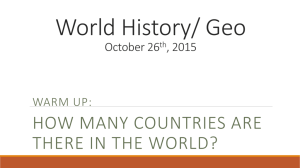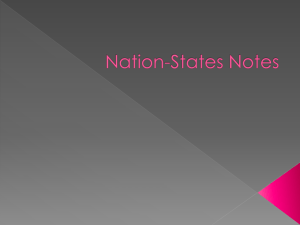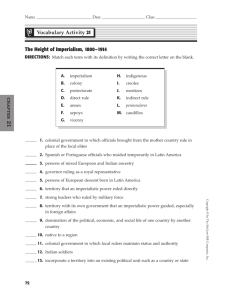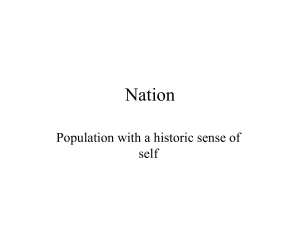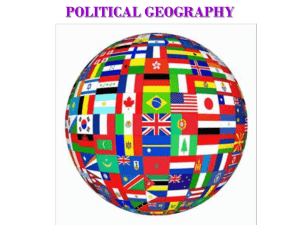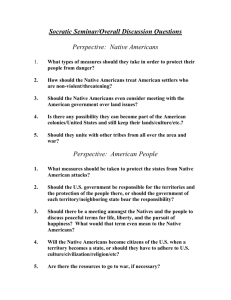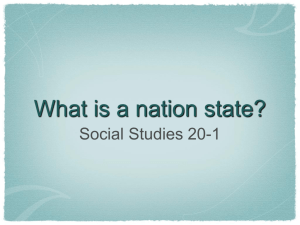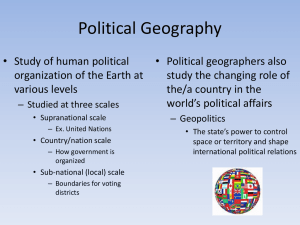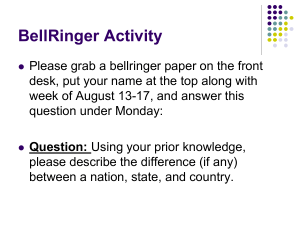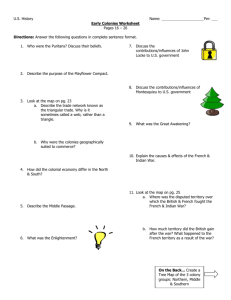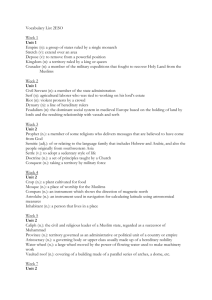Political Geography Concepts Political geography: study of Political
advertisement
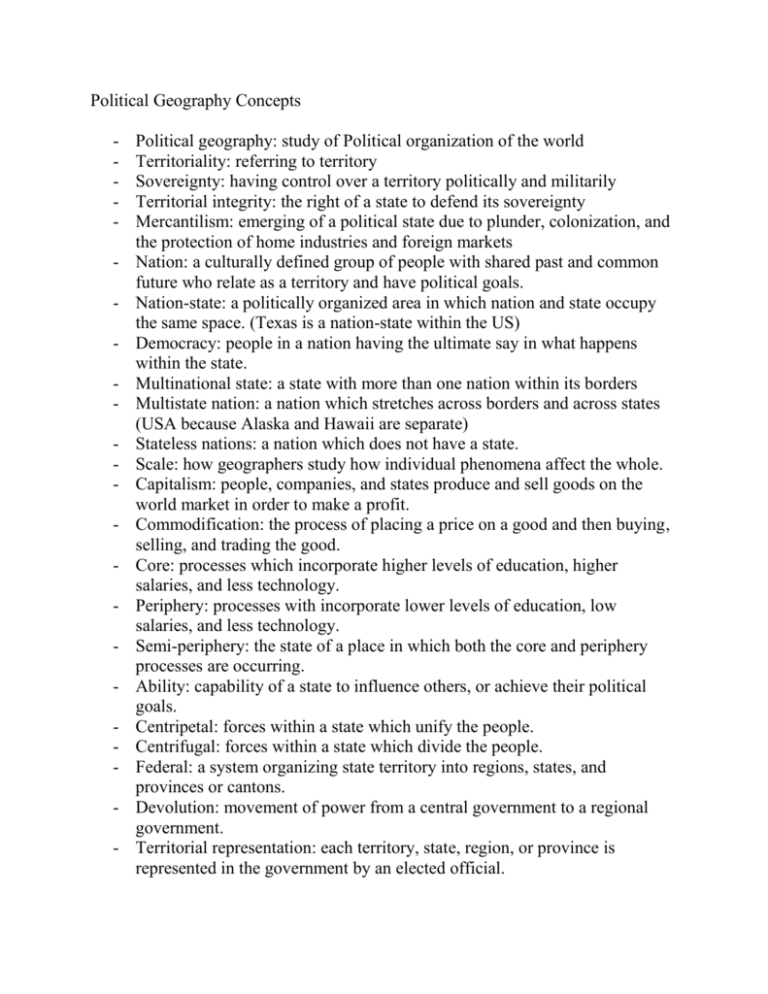
Political Geography Concepts - Political geography: study of Political organization of the world Territoriality: referring to territory Sovereignty: having control over a territory politically and militarily Territorial integrity: the right of a state to defend its sovereignty Mercantilism: emerging of a political state due to plunder, colonization, and the protection of home industries and foreign markets Nation: a culturally defined group of people with shared past and common future who relate as a territory and have political goals. Nation-state: a politically organized area in which nation and state occupy the same space. (Texas is a nation-state within the US) Democracy: people in a nation having the ultimate say in what happens within the state. Multinational state: a state with more than one nation within its borders Multistate nation: a nation which stretches across borders and across states (USA because Alaska and Hawaii are separate) Stateless nations: a nation which does not have a state. Scale: how geographers study how individual phenomena affect the whole. Capitalism: people, companies, and states produce and sell goods on the world market in order to make a profit. Commodification: the process of placing a price on a good and then buying, selling, and trading the good. Core: processes which incorporate higher levels of education, higher salaries, and less technology. Periphery: processes with incorporate lower levels of education, low salaries, and less technology. Semi-periphery: the state of a place in which both the core and periphery processes are occurring. Ability: capability of a state to influence others, or achieve their political goals. Centripetal: forces within a state which unify the people. Centrifugal: forces within a state which divide the people. Federal: a system organizing state territory into regions, states, and provinces or cantons. Devolution: movement of power from a central government to a regional government. Territorial representation: each territory, state, region, or province is represented in the government by an elected official. - Reapportionment: Process by which districts are moved according to population shift so that each district encompasses the same population. - Splitting: rearranging districts in order to dilute minorities so that the majority remains the majority in all districts. - Majority-minority districts: a district in which the majority of people is a minority group. - Gerrymandering: redistricting/reapportionment in order to achieve a political advantage. - Boundary: a vertical plane which divides one state territory from another. - Geometric boundaries: when boundaries are drawn using a grid system such as coordinates. - Physical-political boundaries: boundaries that follow an agreed upon feature in the physical landscape. - Heartland theory: states that whoever ruled modern day Russia ruled all of Asia; and whoever ruled all of Asia ruled the entire world. - Critical geopolitics: intellectuals of statecraft (powerful states) construct ideas about places, and these ideas reinforce and influence political behaviors, policy choices, and how we people process our own notions of places and politics. - Unilateralism: Allies of a world superpower follow rather than helping to make political decisions. - Supranational organization: composed of 3 or more states that forge an association and form an administrative structure for mutual benefit and completion of shared goals.
